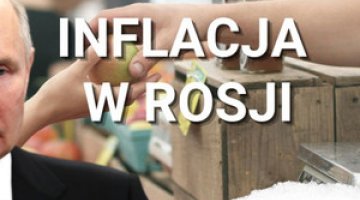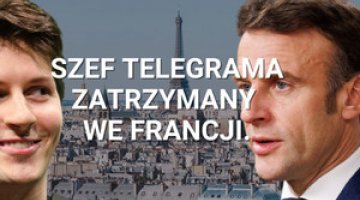Russia: a stagnation budget
On 29 November, the Federation Council passed the federal budget for 2013 and the period from 2014-2015, on the basis of the Ministry of Economic Development’s plan for the socio-economic development of the Russian Federation to 2020, and the recommendations contained in the twelve decrees issued by President Vladimir Putin on 7 May 2012.
In its work on the budget, the Ministry of Finance has sought to reconcile the conflicting guidelines given by President Putin: on the one hand, a pro-social model of the economy (as set out in his election announcements on raising wages and spending on health, education and culture, which aroused great public expectations); and on the other hand, improving and stimulating the competitiveness of the Russian economy and getting the economy pro-development. High expenditure on social matters and on modernising the defence sector, upon the assumption of a minimum deficit, have made it difficult to find the money to meet both of Putin’s budgetary demands. As a result, the budget for the next three years is rather stagnant in nature, as it attempts to balance rising costs with what is expected to be a negligible increase in income in the slowing Russian economy.
Overly optimistic macroeconomic indicators
The macroeconomic indicators estimated for 2013 seem to be a little too optimistic (3.7% growth in GDP, and a deficit of 0.8% of GDP), as the Russian economy has started to slow down significantly in the last six months. Output growth and domestic demand, regarding both investment and consumption, have fallen; this has brought about higher inflation and a decline in the rate at which imports have risen. The outflow of capital from Russia is continuing; according to estimates from the Ministry of Economic Development, it will increase to US$67 billion by the end of the year. Russia's foreign debt has reached US$597.6 billion, exceeding its gold and currency reserves by US$67.8 billion.
The assumption that inflation can be maintained at 5.5% in 2013 also seems overly optimistic, considering that electricity charges are planned to increase by between 9.1 and 10.6% (compared to just 3% in 2012), and those for thermal energy by between 10.5 and 12.2%; and that charges for municipal and residential services will also rise, as will fares for passenger (by 10%) and freight transport (by 7%).
Income: Maintaining the dependence on raw materials
In 2013, the share of budget revenues in Russia’s GDP will fall, from the current level of 20.7% to 19.3%. The actual incomes will rise by just 1.4%, totalling US$429 billion. Despite repeated declarations that the Russian economy will be diversified, the oil and gas sector will still make up the largest share (46%, US$197 billion) of the budget revenues. To avoid the negative impact of fluctuations in world oil prices on the 2013 budget, the base price for crude oil has been estimated at $91 per barrel (the forecast price is US$97). Another threat to the planned revenues from the oil and gas sector in 2013 may be a drop in natural gas prices, due to changes in the economic situation on the European gas market (such as the oversupply of raw materials, and increasing competition from other suppliers) which may adversely affect Gazprom. In addition, demand for Russian gas has fallen because of the slowdown in the EU and actions to liberalise the EU market. The current economic situation in Russia does not allow for the assumption that the decline in the share of income from the oil and gas sector will be offset by increased income from other sources (such as VAT, import duties, excise and income taxes ).
Priority expenditures: social spending, national defence and internal security
It is expected that budget spending will increase by 4.5% in 2013, and will reach US$446 billion. Almost 30% of the coming year’s expenditures have been allotted to social matters (US$132 billion, a slight increase over this year). However, contrary to government announcements that social issues will be a priority for the 2013-2015 budget, the allotted spending will be significantly lower than previous estimates. Almost 79% of these funds will come from the Pension Fund, which is already running at a loss.
The only budget item which will see a significant increase in spending (from US$71 billion in 2013 to US$103 billion in 2015) is defence (see Appendix). Total expenditure on defence, internal security and legal protection in 2013 will constitute 31% (US$139 billion) of the budget, which will thus be higher than the amount for social spending. This represents a consistent implementation of plans to modernise Russia's armed forces. The move to give the defence sector priority in government spending is probably based on the expectation that it will be the motor of the Russian economy. Such hopes seem hard to justify, especially considering the experience of recent years, when the funds allocated to modernising the Army were often distributed inefficiently, and the lack of supervisory mechanisms encouraged – and continues to encourage – corruption.
2013 will see falls in the shares of budget spending on education (from 4.8% to 4.7%) and health (from 4.8% to 3.8%), and the promised raises in wages for public-sector workers have been passed on to the regional authorities. The attempts to solve the problem of federal budget expenditures at the cost of the regional budgets will increase the burden on the regions. They are already struggling with debt levels which have almost doubled since 2008; 84% of this figure consists of the regions’ debt to the federal budget.
Conclusions
The Russian government has not used the post-crisis recovery to introduce any structural reforms which would help reduce the country’s economic dependence on revenue from the fuel and energy sector; nor is there any indication that they will replace it with income from other sources, unless certain taxes are raised (such as VAT). With the state’s increasing share in the economy (despite the declared plans to privatise state assets), widespread corruption and a growing bureaucracy, it is unlikely that the plans to steer the Russian economy in a pro-development direction and increase its innovation will come to fruition. Nor is it likely that Russia's accession to the WTO will solve its ills. On one hand, membership in the WTO gives the opportunity to modernise the Russian economy through foreign investment; however, on the other hand, it may lead to problems for many uncompetitive branches of industry. The federal budget for the years 2013-2015 was ‘signed off on’ with some difficulty, and it does not guarantee sufficient funds to support many of the pro-development sectors.
Appendix
Most important budget income and expenditure figures for the period 2013-15 (in US$ billions, assuming US$1 = 30 Russian roubles)
|
|
2013/ |
2014/ |
2015/ |
|
Total income including - oil and gas income - other income |
429/100
197/46 231/54 |
469/100
209/44 259/56 |
520/100
231/44 289/56 |
|
Total expenditure including - social spending - national defence - internal security and legal protection |
446/100
132/30 71/16 68/15 |
462/100
137/30 83/18 70/15 |
495/100
152/31 103/21 71/14 |




